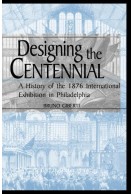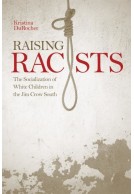Google Books previews are unavailable because you have chosen to turn off third party cookies for enhanced content. Visit our cookies page to review your cookie settings.
Professional Playwrights (Paperback)
Massinger, Ford, Shirley and Brome
Imprint: University Press of Kentucky
Pages: 240
ISBN: 9780813151670
Published: 15th July 2014
Script Academic & Professional
Pages: 240
ISBN: 9780813151670
Published: 15th July 2014
Script Academic & Professional
This book will be reprinted and your order will be released in due course.
You'll be £23.00 closer to your next £10.00 credit when you purchase Professional Playwrights. What's this?
+£4.99 UK Delivery or free UK delivery if order is over £40
(click here for international delivery rates)
Order within the next 46 minutes to get your order processed the next working day!
Need a currency converter? Check XE.com for live rates
(click here for international delivery rates)
Order within the next 46 minutes to get your order processed the next working day!
Need a currency converter? Check XE.com for live rates
The most neglected of the English Renaissance playwrights are the major Carolines -- Philip Massinger, John Ford, James Shirley, and Richard Brome. Writing in the 1620s and 1630s, always in the shadow of their great precursors, Shakespeare and Jonson, they have often been dubbed mere purveyors of slick, escapist sensationalism who avoided the great issues of their day and turned away from the impending breakdown of English society. Ira Clark's revisionist book shows us these dramatists and their time whole, particularly through analysis of their treatment of sociopolitical issues -- issues that find echoes in twentieth-century concerns.
For each of these playwrights, Clark sketches his known social circle, describes characteristic social and political stances and dramatic techniques, and provides a detailed reading of an exemplary play. In considering their artistry, he notes their variations on traditional dramatic characters, situations, and styles. Where their predecessors had offered deep psychological portrayals, the Carolines, he finds, present characters whose roles grow out of their social relations. The issues they engage range from the sovereignty of King or Parliament and the criteria for social mobility to parental dominion and the rights of women and children. Their presentations range from conservatism -- Ford's distilled and Shirley's playful -- through Massinger's accommodation, to Brome's extemporaneous experimentation.
The Carolines' theatrical world, Clark argues, is accessible to modern readers through the social theories of our time, which depend on their "world as a stage" trope for such concepts as symbolic interactionism and the ritual inculcation of social cohesion. This important book sheds new light on both the artistic and the political climate of seventeenth-century England.
Other titles in University Press of Kentucky...















